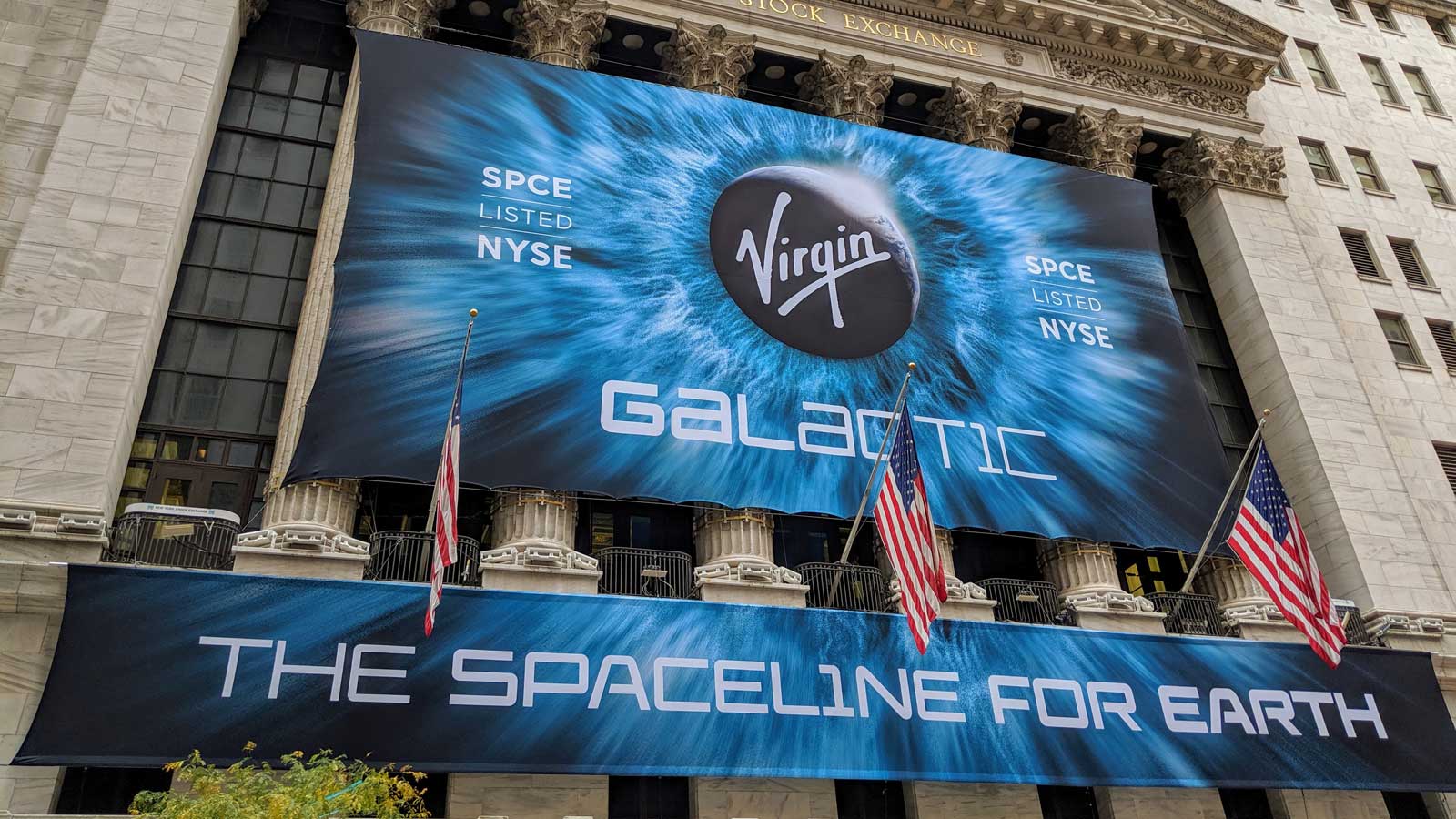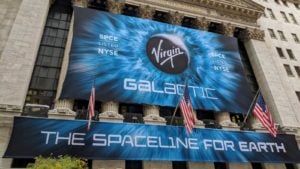I’ve heard of transformative investments, but rebel billionaire Richard Branson is taking it to the next galaxy, and he hopes quite literally. With Virgin Galactic (NYSE:SPCE), Branson intends to make space travel commercially accessible, not only for recreational purposes but also for advancing scientific innovations. There’s just one problem with SPCE stock.
As the eccentric founder should realize, the earth is flat. Furthermore, covering the earth is a dome-shaped barrier called the firmament. According to high-level confidential sources in the upper echelons of the CIA, the firmament is anchored in a 360-degree fashion around Antarctica, which is really an ice wall preventing us from falling over the edge. Therefore, getting beyond this firmament is really an impossible undertaking.
Unfortunately, we live in a world where I must explain explicitly that the above is a joke. But what is apparently not a joke is SPCE stock and the underlying business. At its closing peak, shares jumped over 219% on a year-to-date basis. However, fears of the coronavirus from China spiraling into a global recession quickly unraveled much of the dream.
That said, SPCE stock is still up over 40% at time of writing. Frankly, this is an incredible haul given the dramatic market fears. Should you reserve a seat for Branson’s boldest bet yet?
Here, I agree with our own Ian Bezek. As he put it, “If you like volatility and use smart money management, go ahead and have a blast with SPCE stock.” But based on how Virgin Galactic is structured, this isn’t really an investment but rather a gamble.
I’ll add to the argument by noting that it’s a confusing one as well.
SPCE Stock Lacks a Pathway to Scalability
First, let me just state that the technology underpinning Virgin Galactic is on the far side of brilliant. The process is straight out of a science fiction movie. A carrier aircraft will “drop” a six-passenger space plane at an altitude of approximately 15 kilometers. From there, the space plane will ignite its rocket motor, powering its way to 110 km.
With the boundaries of space defined as 100 km, passengers will experience a few minutes of weightlessness. Additionally, they will see the curvature of the earth, thereby dismissing one of the perplexing theories forwarded on YouTube. It’s a win for science and clearly a win for the passengers enjoying a once-in-a-lifetime experience.
However, that’s where my interest for Virgin Galactic ends and where my skepticism for SPCE stock begins.
Again, I don’t doubt that the company has engineered a transformative aeronautical platform. But we have to clearly delineate the science from the business. As it stands, Virgin Galactic makes no sense.
Tickets to partake in this flight are prohibitively expensive, at a quarter of a million per seat. To be fair, Virgin Galactic representatives have stated that more than 600 people have put down a deposit. But outside of well-heeled billionaires and millionaires, the market for such a commercial enterprise is extremely limited.
Theoretically, advancements in technology and production efficiencies, along with economies of scale, can drive down costs. But I just don’t know how you’re going to scale down from such an extreme threshold.
Furthermore, if Virgin Galactic intends to focus on the space tourism aspect, cheaper alternatives exist. For instance, a company called Incredible Adventures can book you a seat on a Soviet-era MiG-31 fighter jet. Although it can’t launch into space, you can get to the edge of it.
We’ve Seen This Before
One aspect that does offer a more realistic pathway for Virgin Galactic is utilizing the space plane platform for ultra-high speed international travel. For the titans of industry, along with perhaps heads of state, I can imagine some demand coming in.
But will that be enough for SPCE stock? Again, I doubt it and partly because we’ve seen this story before. For several years, Air France-KLM (OTCMKTS:AFLYY) and British Airways operated the Concorde, a supersonic commercial jet.
From a scientific perspective, the Concorde was an impressive achievement in flight. As well, casual bystanders appreciated its sleek, aerodynamic design elements. But from a business angle? As The Sun reported, low passenger numbers and rising maintenance costs killed the program.
Sure enough, Richard Branson proposed several ways to revitalize the brand. Apparently, he has settled on his own pet project.
I wish him well. But until space travel becomes a financially viable option for the average Joe, SPCE stock will simply fail to launch.
A former senior business analyst for Sony Electronics, Josh Enomoto has helped broker major contracts with Fortune Global 500 companies. Over the past several years, he has delivered unique, critical insights for the investment markets, as well as various other industries including legal, construction management, and healthcare. As of this writing, he did not hold a position in any of the aforementioned securities.

